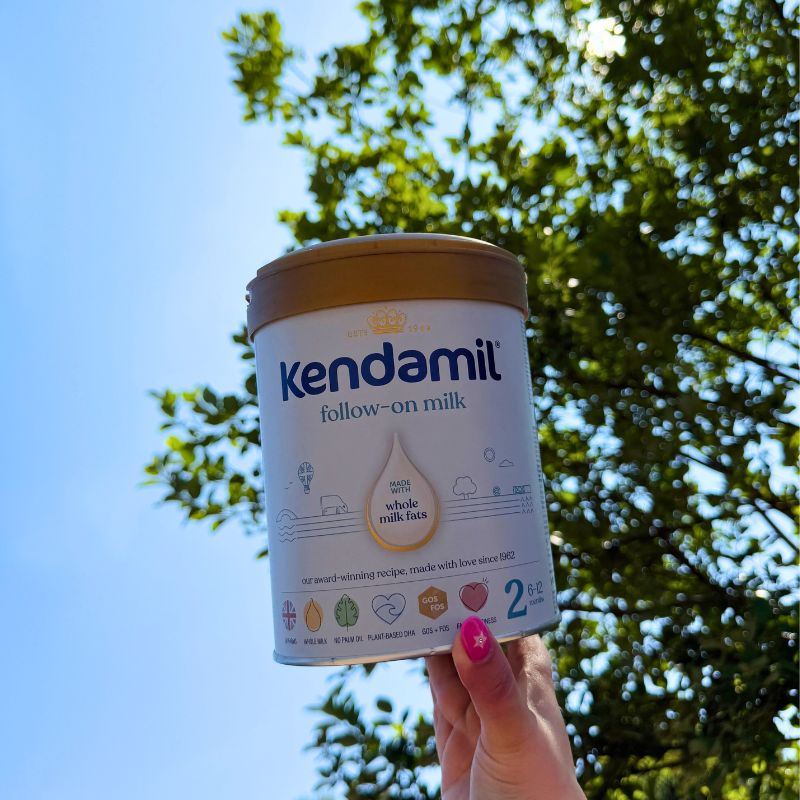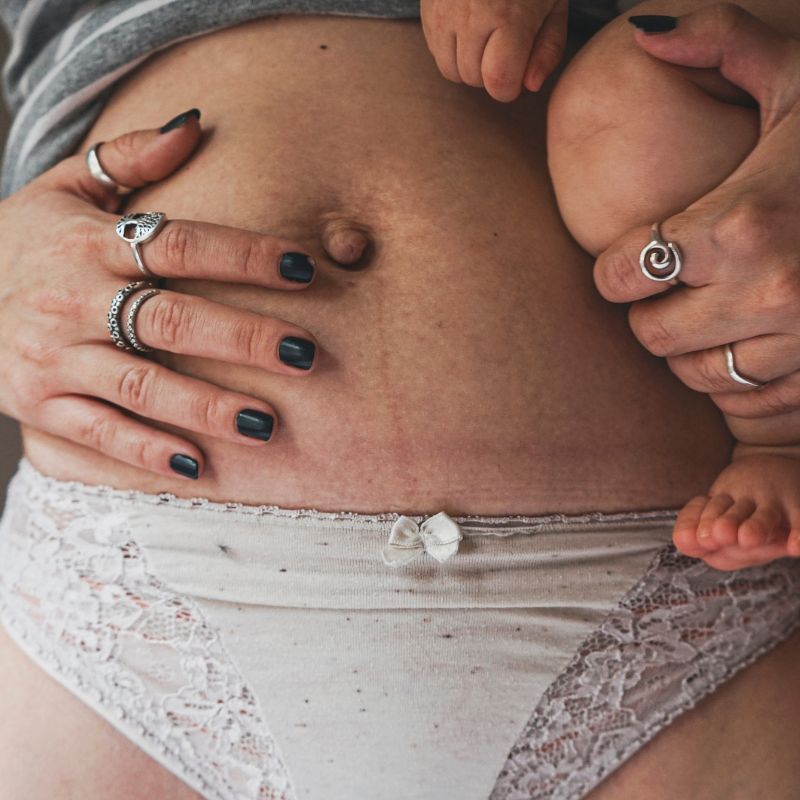Whilst you’ve likely heard lots about milk allergies or intolerance in babies, it’s actually not as common as you might be led to believe. Many new parents dealing with a fussy baby suspect that their new baby must have a cows’ milk allergy intolerance. Although it is more common than other types of allergies in young babies, milk allergies actually only affect 2-3% of babies. Many parents don’t always understand the difference between milk allergy and intolerance, so to help clear up the issue we asked Kendamil Feeding Expert Katie Hilton to explain.
When a baby has a milk allergy, their immune system reacts in a negative way to the protein found in cow’s milk. Cow’s milk allergy (also known as CMA) can be seen in both breastfed and bottlefed babies; breastfed babies react to the daily intake eaten by their mother and the proteins which then pass through breastmilk, whilst formula fed babies react to the cow’s milk protein within the formula. In both situations, the baby’s immune system sees the cow’s milk protein as a foreign body and then reacts to try to fight off these invaders!
Your baby’s body releases something called histamine along with several other chemicals, which causes allergic type symptoms within the body. Symptoms of a milk allergy include:
- Frequently bringing up a little milk after a feed
- Vomiting
- Abdominal pain or colic-like symptoms
- Excessive crying and irritability after feeds
- Diarrhoea
- Blood in the stool
- Hives
- Scaly skin rashes
- Coughing or wheezing
- Watery eyes
- Stuffy nose
- Swelling, especially around the mouth and throat
- Trouble breathing
- Bluish coloured skin
Milk intolerance, on the other hand, has absolutely nothing to do with cow’s milk proteins or a reaction from the immune system. It is instead related to the digestive system and the way in which the body processes the constituents of the milk. It can occur in both a breastfed and formula fed baby and relates to the way a baby digests the sugars in the milk, which is also known as lactose (and why you will often hear milk intolerance referred to as lactose intolerance). Milk intolerance in babies from birth is extremely rare and more often develops in older children. Symptoms of true lactose intolerance in babies include:
- Excessive wind
- Diarrhoea
- Bloated tummy
- Bringing up milk after feeds
- Irritability and crying after feeds
- Failure to gain weight
It is worth pointing out that baby milks have changed dramatically over the years (and not always for the better). Decades ago, it was accepted for baby milks to contain natural milk fats from full-cream milk. Sadly, today such recipes have been cheapened with palm oil and 100% vegetable fat recipes. I would always recommend a baby milk made with full-cream milk and no palm oils or other cheap ingredients for your little one.
If your baby does have symptoms of either a milk allergy or intolerance, then it’s time to visit your GP. They will give your baby a physical examination, discuss your family history of allergies and refer onto a paediatrician for further testing. They may also recommend using a hypoallergenic formula until screening has been completed.
If you would like to learn more about Kendamil’s product range, please click here.
Important Notice: Breastfeeding is best. Kendamil Follow-on milk is only for babies over 6 months, and should be used as part of a mixed diet. Please talk to your Healthcare Professional.

















